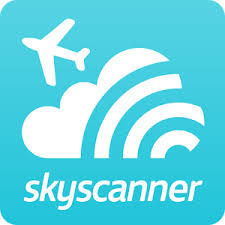What happened to the top tech startups of 2013?
| Beauhurst
Category: Uncategorized
Back in June 2013, Mashable published a list of the UK’s top 25 tech startups, notably highlighting that the UK’s innovation ecosystem was not solely confined to the then burgeoning London startup scene. But which ones made the cut?
SongKick

What does it do?
>Songkick is an internet platform that allows users to track bands, discover gigs, and find tickets before they sell out.
Born from the ideal that “every show should be a sell-out”, the company is allegedly used by over 10 million monthly fans, and tickets over 10,000 events worldwide a year.
Where was it then?
Songkick was one of the more obvious forerunners of the startup scene. When Monty was knocking-together his top 25 back in June 2013, the company had already gotten 4 equity fundraisings under its belt – amounting to over $20m.
SongKick was hailed ‘one of the original anchor startups in London’s Silicon Roundabout’, and in March 2012 was the recipient of Sequoia Capital’s first ever UK investment – an equity deal to the tune of $10m.
In these early days, however, SongKick was solely a concert discovery service.
What’s changed?
In 2015, Songkick merged with CrowdSurge – the north-London-based startup which had focused on helping artists sell more tickets directly to fans.
“We faced the question at Songkick of whether we were going to spend the next three years replicating everything CrowdSurge had done, or whether we were going to join forces. It made so much sense to come together”, says Ian Hogarth, Songkick co-CEO.
This merger went hand-in-hand with expansion into the US, and was followed by the sweet sound of subsequent equity deals collectively worth $26m.
Who’s funding?
Index Ventures, Sequoia Capital, Access Industries, YCombinator
What does the future look like?
Things sound too good not to be true for Songkick. Although, recently, the company has become embroiled in a legal battle with concert promotion partnership Live Nation Entertainment, Inc. and its Ticketmaster subsidiary. Songkick alleges its rivals have “exploited their monopoly power”.
Brandwatch

What does it do?
Brighton-based Brandwatch is all about getting value from social data. Brandwatch’s smart software enables marketers to capture, analyse, and implement insights from online social media exchanges to help advise business.
Where was it then?
Brandwatch had secured two grants, an equity investment, and a loan by the time they featured in Mashable’s top 25. The initial grant was part of an Innovate UK project: Exploitation of Diverse Data via Automatic Adaptation of Knowledge Extraction Software, and involved collaboration with Sussex Uni. $6m equity investment from Gorkana Group and Nauta Capital, was followed by a £1.5m loan from Silicon Valley Bank, and a second £223k Innovate UK grant.
What’s changed?
Since June 2013, Brandwatch has gone on to secure two massive rounds of equity finance. A $22m growth-stage co-investment from Highland Capital Partners Europe and Nauta Capital in May 2014. And a $33m follow-on investment in October 2015, which saw Partech Ventures get in on the act.
Brandwatch has since expanded to New York and San Francisco. High profile clients include: IKEA, Heineken, SKY, and Dell.
Who’s funding?
Gorkana Group, Nauta Capital, Commercial Banking Loan, Highland Capital Partners Europe, Partech Ventures.
What does the future look like?
The future looks bright for Brandwatch. Some have even hailed the company’s $33m raise as Brighton’s Biggest ever equity round.
We caught up with the guys at Brandwatch back in July for our The Deal H1/15 feature ‘Brighton: the Silicon Beach?’. Joel Windels, Marketing VP, had great things to say about the city’s character – a factor he feels has helped the company’s success:
“The quirkiness that pervades the city drives innovation by nurturing a less risk-averse culture.”
He did add, however, that “there aren’t enough investors on the lookout for the next big thing.”
Which made us wonder: how easy is it to consistently raise big rounds in Brighton? And could Brandwatch become too big for its sea-side city?
Psonar

What does it do?
The pay as you go answer to music streaming, Psonar is all about music without the ads. The Cambridge-based company has been described as a ‘digital dukebox’, and allows users to listen to tunes from as little as 1p.
Psonar CEO, Martin Rigby, says the streaming site aims “to serve the disenfranchised majority of music fans who want access to on-demand streaming, but who cannot afford subscription streaming”.
Gonçalo de Vasconcelos, SyndicateRoom founder and CEO, also believes the “unique blend of music streaming and the pay-as-you-play model lowers the barrier to entry for music lovers who don’t fancy shelling out on hefty subscription models”.
Where was it then?
By the time Mr Munford was writing his top 25, Psonar had completed 3 unannounced seed-stage equity deals amounting to £264k.
What’s changed?
Since June 2013, Psonar has completed a further 5 equity fundraisings – including a Crowdcube campaign, and backing from the London Co-Investment Fund. The company has also released a free to download app.
Who’s funding?
Syndicate Room, Crowdcube, London Co-Investment Fund
What does the future look like?
Psonar has had its work cut out, what with the likes of Spotify and Apple music to compete against. But with its unique pay-as-you-go model, Psonar has managed to carve out its own niche in the market allowing it to grow steadily since 2008.
Skyscanner

What does it do?
Edinburgh-based Skyscanner, the search engine that compares flights, hotels, and car hire prices, was born out of a personal frustration.
“I couldn’t find just one resource to tell me who flies where and for how much, that had both scheduled traditional carriers and emerging low cost airlines” says Skyscanner CEO Gareth Williams.
Awarded its first accolade in 2003 when it was named ‘website of the day’ on BBC Radio 2, Skyscanner now has up to 30,000 visitors on its site at any given time.
Where was it then?
Skyscanner had completed just one equity deal by June 2013. Crucially, though, it was with Scottish Equity Partners for £2.5m – and at an impressive post-money valuation of £8.1m.
What’s changed?
Not long after Munford’s tip-off, Skyscanner acquired Barcelona-based hotel search company Fogg. This was the first in a string of acquisitions and expansion, which went on to include Chinese flight comparison website Youbibi, and Hungary-based mobile app company Distinction. Skyscanner now has 10 global offices.
Early this year Skyscanner entered the rarefied stratosphere of Unicorn status (a company valued at $1bn, or greater) after completing a £128m fundraising led by Artemis.
Who’s funding?
Scottish Equity Partners, Sequoia Capital, Artemis, Vitruvian Partners, Khazanah Nasional Berhad, Yahoo! JAPAN
What does the future look like?
You’d be forgiven in thinking the sky’s the limit for Skyscanner. While the Scottish unicorn faces competition from US-based Expedia, FareCompare, and Opodo, the company is allegedly retaining its identity by remaining fundamentally ‘localised’ – i.e: adapting to regional travel practices, such as offering bus comparison services in India.
Ai is reportedly next on Skyscanner’s radar, with a team of engineers currently working on an app for Amazon’s voice activated smart assistant Alexa.
Droplet

What does it do?
Droplet is a mobile payment and loyalty app which allows indie businesses to build better customer relationships. The app allows users to pay without queuing, and to collect rewards as they do. But businesses are winners too, as Droplet operates on a fee-free transaction basis.
Where was it then?
Droplet was a pretty savvy bet by Munford, considering the startup had then completed just one unannounced equity deal for a paltry £50k. That said, it was at a relatively sizeable £1.1m post-money valuation.
What’s changed?
The fin-tech startup has gone on to secure a further 4 rounds of equity finance since June 2013. And this doesn’t include the company’s second Crowdcube campaign, which is currently live and set at £450k.
Who’s funding?
Ascension Ventures, Finance Birmingham, Crowdcube
What does the future look like?
Stephen Aquarone, Droplet founder and CEO, says:
“We’re at the stage where we’re very nearly ready to raise the sort of money that powers the likes of Deliveroo. Once the growth is predictable, larger financiers come in to speed it up, which is how challenger banks like ours get so big, so fast”.
Well, you heard him – watch this space…
Get a free tour of the platform.
